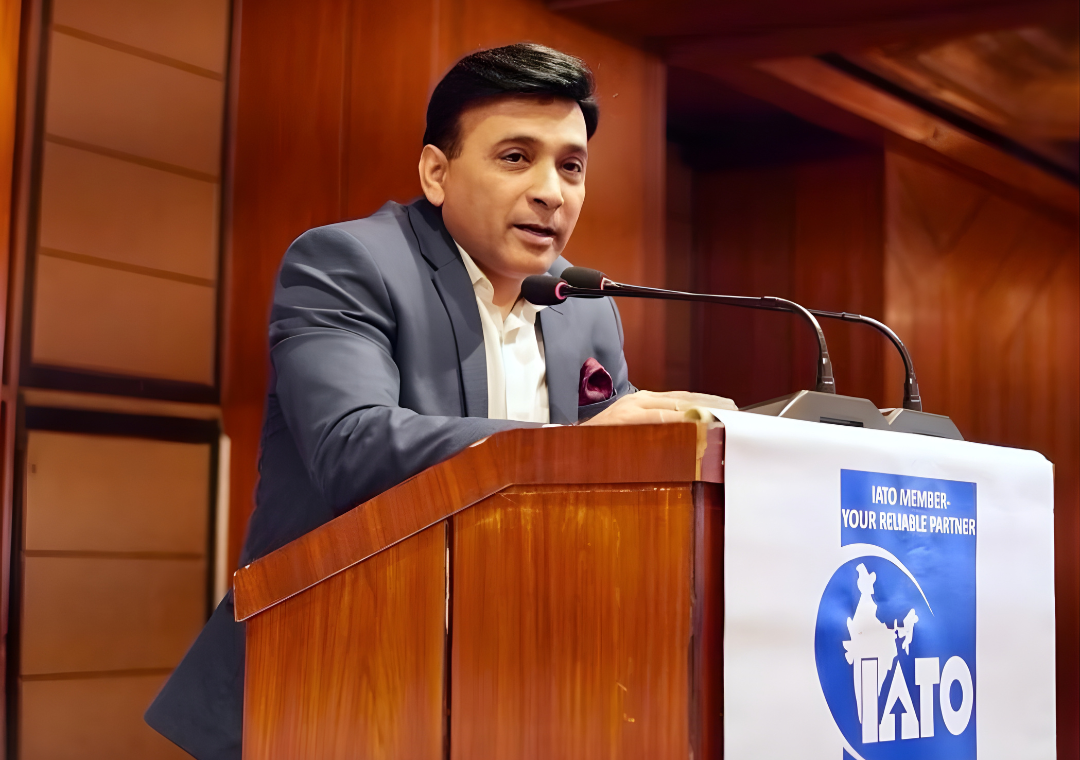The tourism sector, which has always been a champion of cultural exchanges, memory-making, and economic development, is now going through a radical change. Technology, right at the centre, is not only changing the way we buy travel but also the way we experience it.
The travel industry has gone through a complete yet subtle transformation powered by AI, VR, data, and personalisation, which are the main factors prioritised: ease, speed, and engagement.
Travelling Personalised to You
AI-powered platforms are completely changing the way we plan our trips. The utilisation of AI assistants, chatbots, and dialogue-based AI brings the travellers their own personal recommendations depending on their most liked, previous bookings, and popular experiences, among others. To illustrate, virtual assistants can come up with the best itinerary in a place to visit, suggest nearby restaurants and even book tickets—all through a talk interface. The first voice technologies are making all this accessible so that the tourists can command their travel simply by voice.
The personalisation through domain-specific LLMs is even more sophisticated. Whether it is a solitary retreat in the mountains or an adventurous family trip to a historic city, technology will ensure that the tourists get just what they need.
Seamless Booking and Operations
The evolution of Virtual Assistants VideoBots to ChatBots has made hotel reservations, check-in, and concierge as simple as can be. No more standing in queues; AI-based systems take care of bookings, verify payment, and deal with inquiries efficiently. The ski resorts combined AI and lifecycle approach of major hospitality chains ensure that all the minor details in the customer experience are tuned so that business operations run smoothly with very low error rates.
Even hotels can resort to predictive analytics to decide on prices, control rooms and understand demand. This is a win-win situation for both – customers get priced right and the hotels make the most of it through dynamic pricing strategies.
Immersive Experiences and Virtual Tourism
Technology is not just about logistics; it’s about building human-immersive travel experiences. Virtual reality (VR) and augmented reality (AR) facilitate visitors to “visit” destinations, heritage sites, and even hotel facilities before actually putting foot there. Such Accessible AI-based offerings enable older people, differently-abled travellers, or nervous-to-travel people to experience tourism in advance while planning subsequent visits.
In addition, Sovereign AI and Secure GenAI provide safeguards to ensure that traveller information is shielded as such platforms gather insights to enhance service provision. Travellers have the opportunity to investigate destinations, view hotel floor plans, and even participate in cultural workshops, virtually narrowing the difference between imagination and reality.
Health, Safety, and Contactless Tourism
The pandemic hastened the use of contactless alternatives. Mobile check-in, digital keys, AI-driven sanitation monitoring, and AI Agents tracking crowd density are now norms.
Technology today not only promises convenience but also security, a concern for travellers today. Wellness tracking through travel apps and wearables gives tourists complete control over their well-being.
Sustainability and Smart Travel
Sustainability has taken centre stage in travel. AI-based systems assist in tracking energy consumption, water usage, and carbon footprints of hotels and tourist activities. Using predictive analytics, hotels are able to manage their resources efficiently, minimise losses, and provide eco-friendly experiences to travellers. The visitors, on their part, make informed decisions and do their holiday planning in such a way that they take part in green activities.
The Future: AI and the Traveller’s Journey
The future will see a more profound integration of the physical and technological travel experience. From AI-driven city walks to intelligent luggage tracking and self-driving transportation, the convenience-adventure boundary will become indistinguishable. Travellers will anticipate solutions of easy living, effortless personalisation, and safe digital interaction.
For the business, this is a chance to responsibly innovate. Being Human-Centric AI implies that technology complements human hospitality but does not substitute it. With Virtual Assistants, AI Assistants, and Conversational GenAI driving operations, hotels and travel companies are liberated to focus on creativity, service, and memorable experiences.
Conclusion
Technology has no longer been a mere supportive function in tourism; it has rather taken the role of a major force in the new travel era. The travel industry is evolving to be a more intelligent, secure, and engaging one by the merging of AI-driven personalisation, experientiality, operational efficiency, and sustainability. As the travellers are more and more in quest of comfort, safety, and individualised services, the organisations that will be victors are those that will digitally transform with being responsible, thoughtful, and creative mindset.
Travel in the future is not only about arriving at new destinations, but it is also about immersing in new places in such a way that one can use his/her imagination while at the same time being aided by intelligent technology, thus making every trip smarter, safer, and unforgettable.

